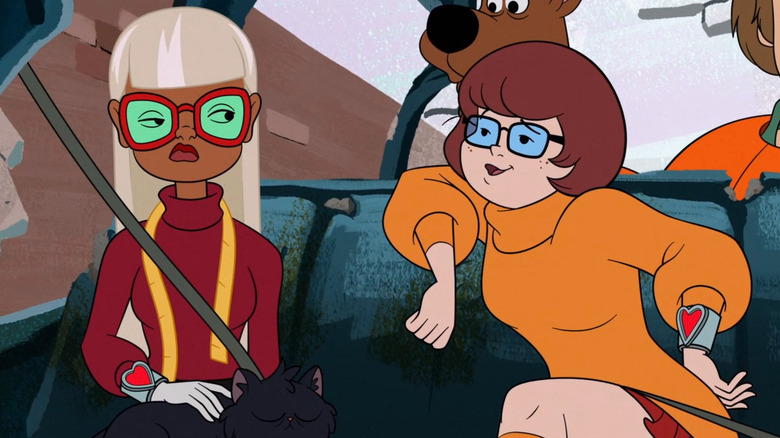Lesbian Velma and Beyond: Consumer Influence on Media
November 5, 2022
In Hanna-Barbera’s latest Scooby-Doo release, “Trick or Treat Scooby-Doo!,” Mystery Inc. member Velma Dinkley was confirmed to be a canonical lesbian for the first time. Unlike many character changes that occur as Hollywood cares more about representation, this didn’t come out of nowhere.
For years, Velma has been speculated by many circles to be a closeted lesbian, specifically by lesbians themselves. However, many of Velma’s previous iterations were in straight relationships, like in the movie “Scooby-Doo 2: Monsters Unleashed” and the TV show “Scooby-Doo! Mystery Incorporated.” What finally made the executives at Hannah-Barbera add this distinct change to Velma’s character? To answer this question, we have to look at another Scooby-Doo character: Shaggy.
A Meme Turned Reality
Around mid-2018, memes on all social media platforms circulated the internet claiming that Shaggy was an all-powerful, godlike being. Many people took this as a non-canonical joke, but as Hanna-Barbera became more involved in the creation of the video game “MultiVersus,” they insisted on designing Shaggy in congruence with the memes.
Shaggy was proclaimed to be a godlike being by his creators. Fans of the memes and Scooby-Doo alike united on the internet to celebrate the design. It was a win not only for fans but for the internet as a whole. A franchise people had been supporting for years had finally shown interest in its audience and gave them what they wanted. A similar thing happened with the first live-action Sonic the Hedgehog movie.
Sonic’s Awful, Awful Face
When the first trailers broke for “Sonic the Hedgehog,” director Jeff Fowler came under fire for allowing a terribly designed Sonic in the movie. All of the cartoon charm fans came to love over the years was replaced with fleshy lips and human teeth. For weeks, people on all platforms bashed the film until Fowler announced that he was going to change the design after fan outcry under the hashtag #gottafixfast. The release date was pushed back another year and millions of dollars were spent trying to recover from this decision, but luckily Sega’s massive investment of time and money paid off. Sonic fans went to see the movie in droves, raising the film to first in box-office earnings on opening weekend.
The dialogue between the company and the consumer used to be simple: companies convinced the consumers to buy their products. Consumers get what they get. That isn’t the case anymore. Consumers in 2022 now have the option to shape a product as it’s being made. In this way, the internet is both a blessing and a curse for big-budget media like film, TV and video games. Media companies nowadays receive appraisals from their audience faster than ever before, but they also receive backlash and hate just as fast. At the breakneck speed trends move nowadays, the most successful faces in media, like Scooby-Doo and Sonic, have adapted by changing with the trends.
It’s a massive win for the lesbian community that Velma’s finally out of the closet, but that isn’t the only thing worth celebrating. It’s a sign that the people have the media they consume in their hands unlike ever before.








